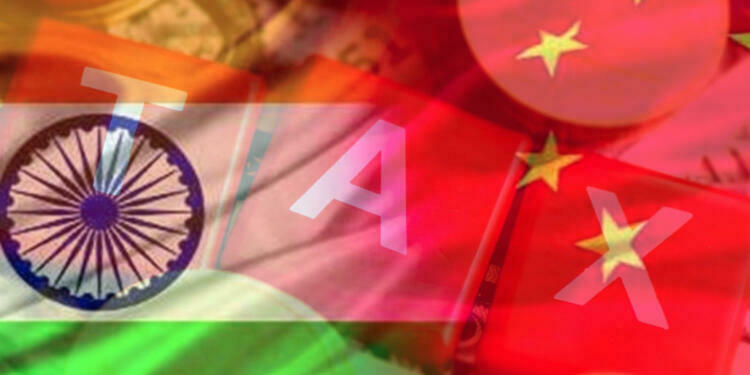Today, almost every foreign company wants to enter the Indian market due to its vast swathe of public purchasing power. China, being the ‘non-violent’ neighbour of India wants to do just that. But, they often underestimate India and try their unethical attempts of tax evasion through their companies present in India. However, the communist nation needs to understand that India will no longer tolerate their fraudulent efforts.
ZTE Corporation is in crisis
Recently, Delhi High Court raised legal questions on the tax-related issues involving a telecom equipment supplier, ZTE corporation, and the Income tax department. The High Court raised questions about the company’s tax evasion tactics. In addition, its implications can be reflected in other cases against Chinese companies that are under the scrutiny of tax authorities.
In addition, various other Chinese companies including Huawei, Vivo and Xiaomi are facing investigations by Indian agencies. Regarding these companies, cases range from involving transfer pricing and payment of royalty to their respective parent companies, to how the revenue and profits are accounted for in India.
ZTE has been in the High Court for quite some time now
ZTE Corporation, as a company has been to the High Court earlier as well. The company had challenged the evaluation of the Income Tax department for two financial years, first in 2016-17 and then in 2017-18. The entity approached the High Court in June 2021, when the Income Tax Appellate Tribunal (ITAT) “partly” allowed the company’s challenge. The tax assessing officer for both the assessment years sent show-cause notices to the company based on a 2009 survey conducted by the department in the offices of the Indian subsidiary in Gurgaon and Mumbai.
In another appeal, similar to the tax assessment case filed by the company in 2017, the High Court asked whether the investigating Income Tax Officer was justified in adopting different rates of attribution of profit. If it is the case, it contradicts the Indo-China Double Taxation Avoidance Agreement.
The Double Tax Avoidance Agreement (DTAA) is a bilateral agreement between two countries. Its objective is to promote and foster economic trade and investment between two countries by avoiding double taxation. The agreement becomes essential to avoid conflict regarding the chargeability of income.
Another case associated with DTAA came into the limelight last December when the High Court admitted a plea by ZTE corporation against the tax department’s findings and the order of an appellate authority that was partially in the company’s favor. It was asked by the company if the taxable income could be accredited to the permanent subsidiary of a Chinese company in India on account of supplies from the foreign parent. In regard to this, the company also asked about the attribution rate of profit in such a case.
China: The bordering threat
For quite some time now, China has been trying to harm India economically and territorially. Whether it’s about border clashes or carrying out illegal activities, China has always chosen India as its compatible rival. Indeed, India holds the capacity to challenge any power in the world. The democratic country is no more a mere land of harmony but it has also developed itself to cause danger to any superpower.
However, the dragon is now challenging the lion, without realizing that the former got extinct, and now it’s time for its representative to surrender.
Blunders by Chinese companies
The Galwan Valley clashes that erupted in the year 2020, near the area of the Line of Actual Control (LAC) have caused China under speculation by Indian agencies. The deliberate attempt of China to inflict India has caused various Chinese companies under scrutiny.
In 2021, when a global chip shortage forced many smartphone makers to delay launches, Chinese brand ‘Realme’ rushed to India. With processors from global giants such as Qualcomm Inc. in short supply, Realme decided to buy them from an anonymous Shanghai manufacturer to supply in Indian markets. Though, some of the Chinese products have catered to the need of the Indian mobile phone market but is a matter of fact that China has been a part of failed attempts to wounding India in any manner possible.
It is pertinent to note here, that various Chinese companies that are present in India with investments are under the scanner for alleged links with the People’s Liberation Army (PLA).
Not to forget, that in 2020, India banned a humongous number of Chinese apps amid the threat to the privacy and security of Indian citizens. It came under exposure that apparently, China used some of these apps to collect sensitive information related to the sovereignty and integrity of India.
The communist nation has time and again tried to disrupt the Indian jurisdiction of stability and harmony. To fulfil this goal, it is trying to surround India from every corner of its geography but its recurrent attempts are continuously failing. The greedy leader of Sino territory needs to realize the power of India, that the world’s largest democracy is now a master at giving back to its rivals.
Support TFI:
Support us to strengthen the ‘Right’ ideology of cultural nationalism by purchasing the best quality garments from TFI-STORE.COM
























